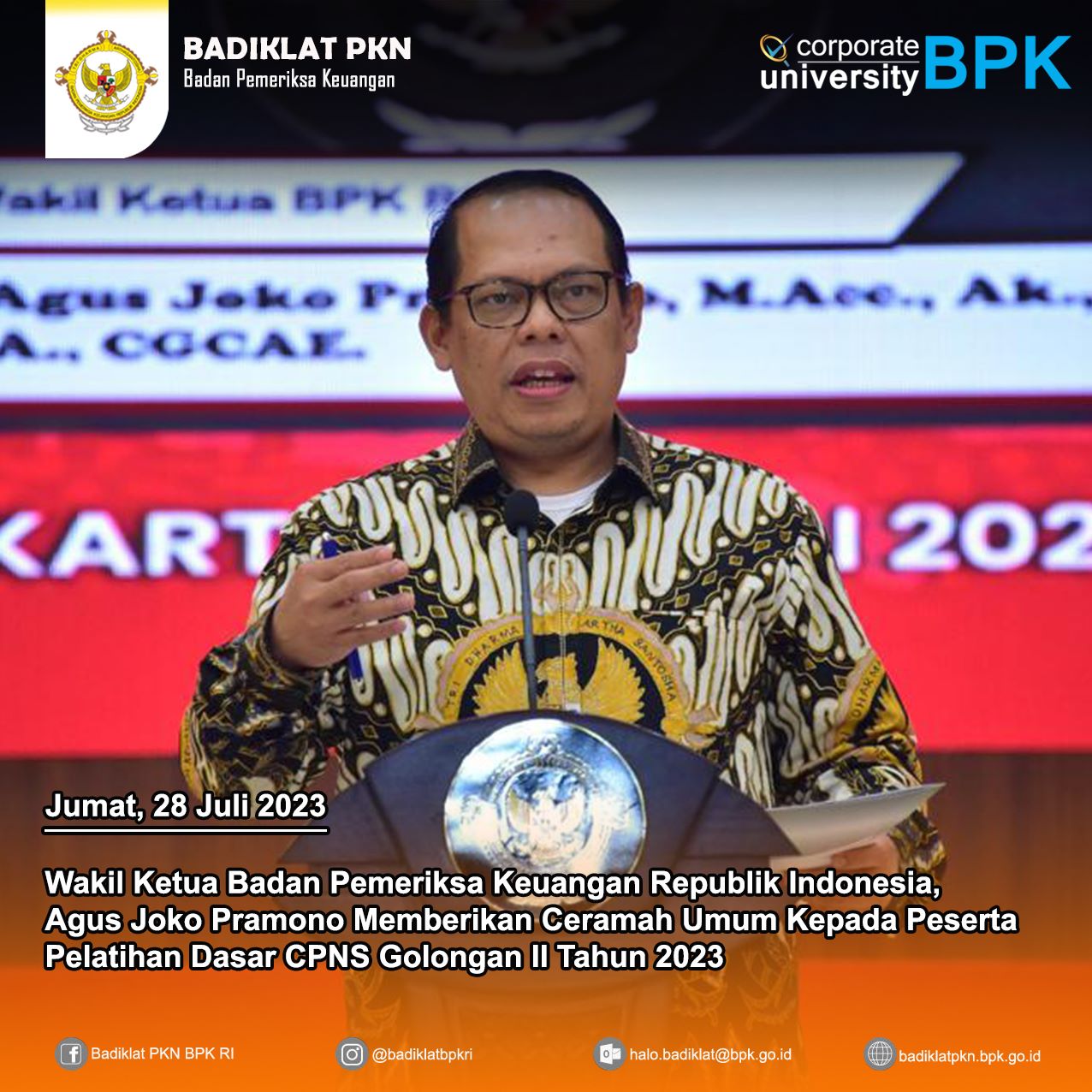 “Imagine you work as a professional auditor who knows your performance, competence, and ethical standards, namely what may and may not be done. Why must we be professional as civil servants and, most importantly, on top of professionalism? There is idealism, namely how you hold yourself together with other standards,” said Deputy Chairman of the Audit Board of the Republic of Indonesia (BPK), Agus Joko Pramono, in his Public Lecture at the BPK Auditorium, Tower Building, 2nd floor, BPK RI Central Office, Friday (7/28).
“Imagine you work as a professional auditor who knows your performance, competence, and ethical standards, namely what may and may not be done. Why must we be professional as civil servants and, most importantly, on top of professionalism? There is idealism, namely how you hold yourself together with other standards,” said Deputy Chairman of the Audit Board of the Republic of Indonesia (BPK), Agus Joko Pramono, in his Public Lecture at the BPK Auditorium, Tower Building, 2nd floor, BPK RI Central Office, Friday (7/28).
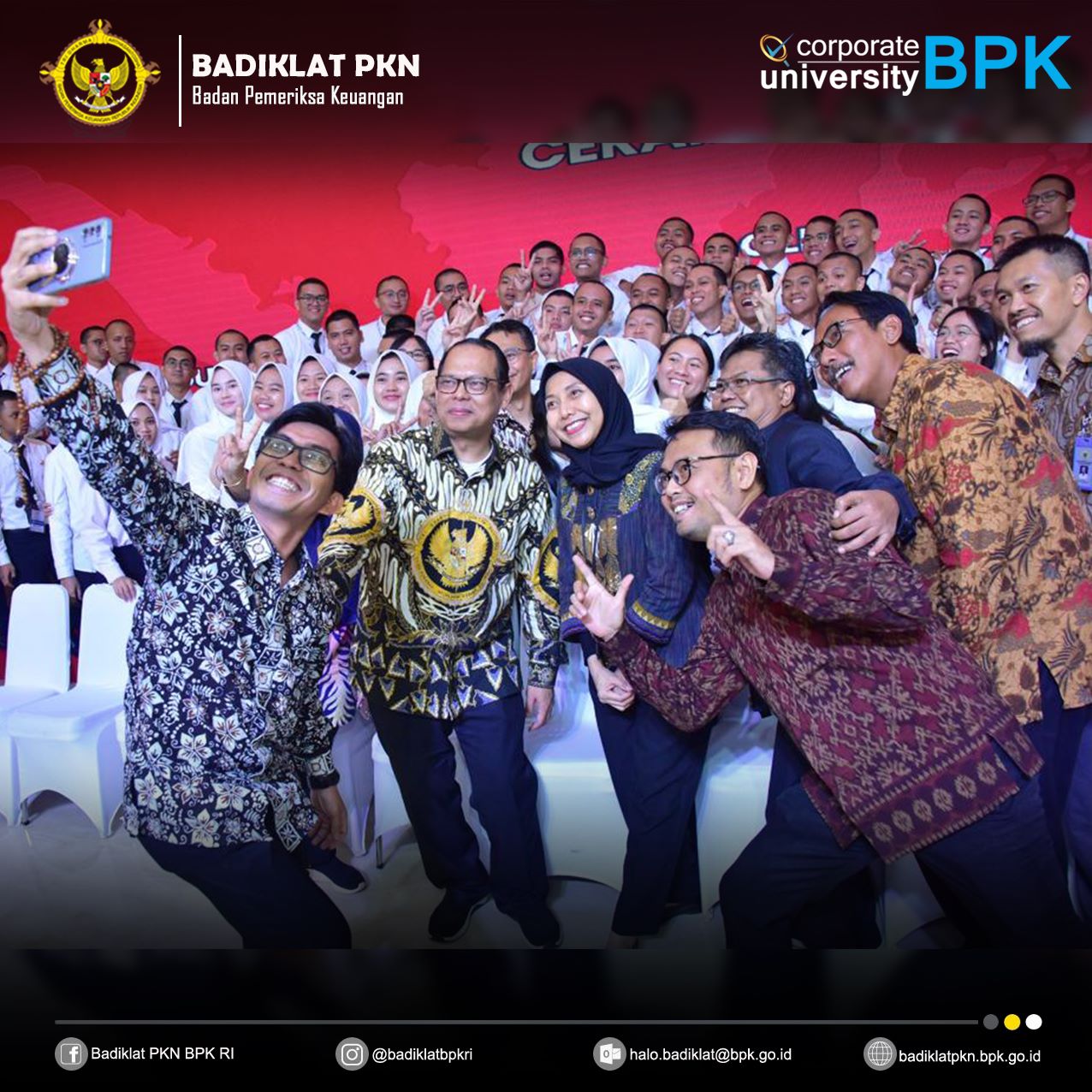
The Director General of the Training Institute of State Financial Audit (Badiklat PKN), Suwarni Dyah Setyaningsih, the management and facilitator for the Basic Training (Latsar) as well as one hundred (100) Civil Servant Candidates (CPNS) of the Audit Board of the Republic of Indonesia (BPK) Group II of DIII STAN formation attended the Public Lecture with the theme of Civil Servant (ASN) Professionalism.
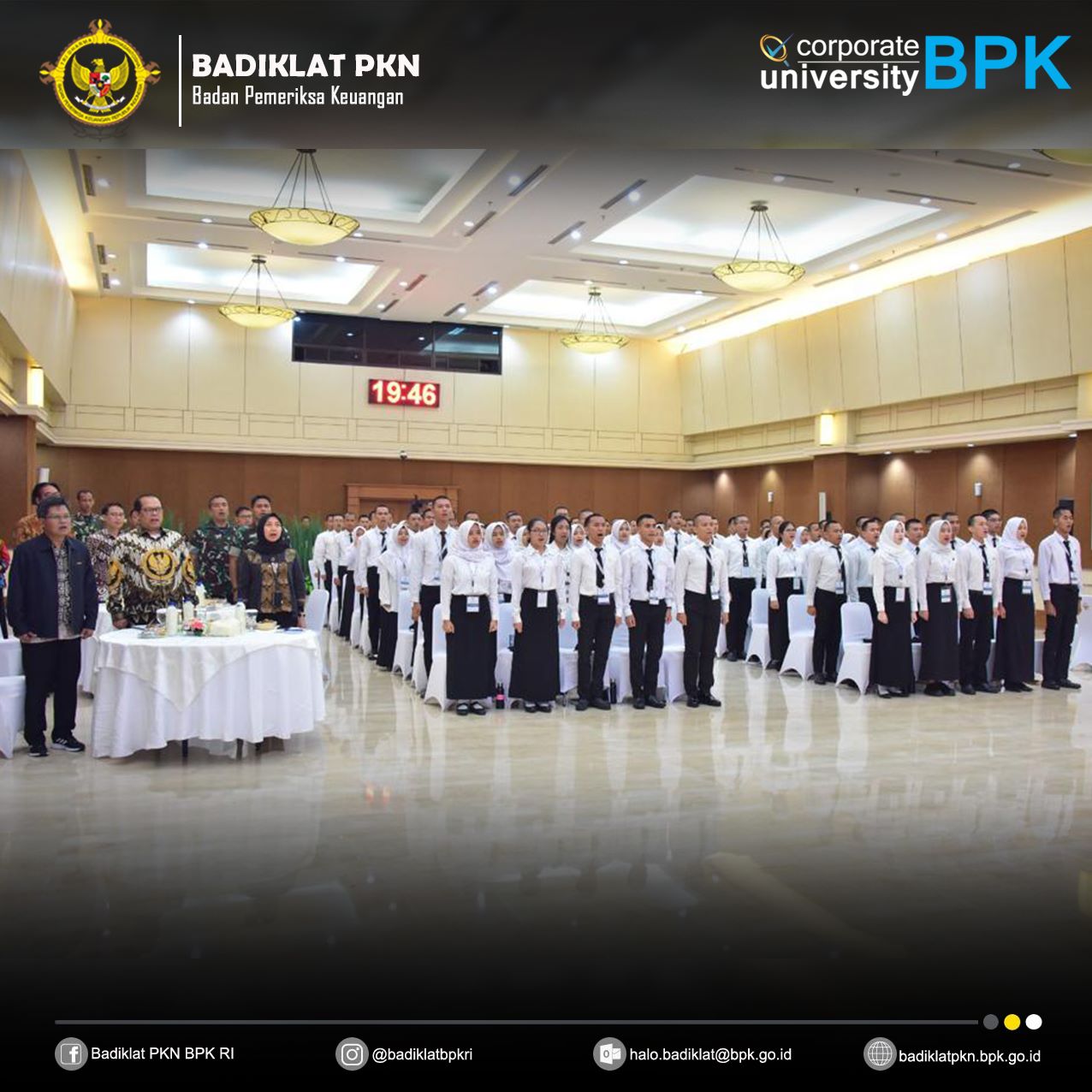
State Financial Audit Standards defines professionalism as the ability, expertise, and commitment of the profession in carrying out duties accompanied by the principles of due care, thoroughness, and accuracy and guided by standards and provisions of laws and regulations.
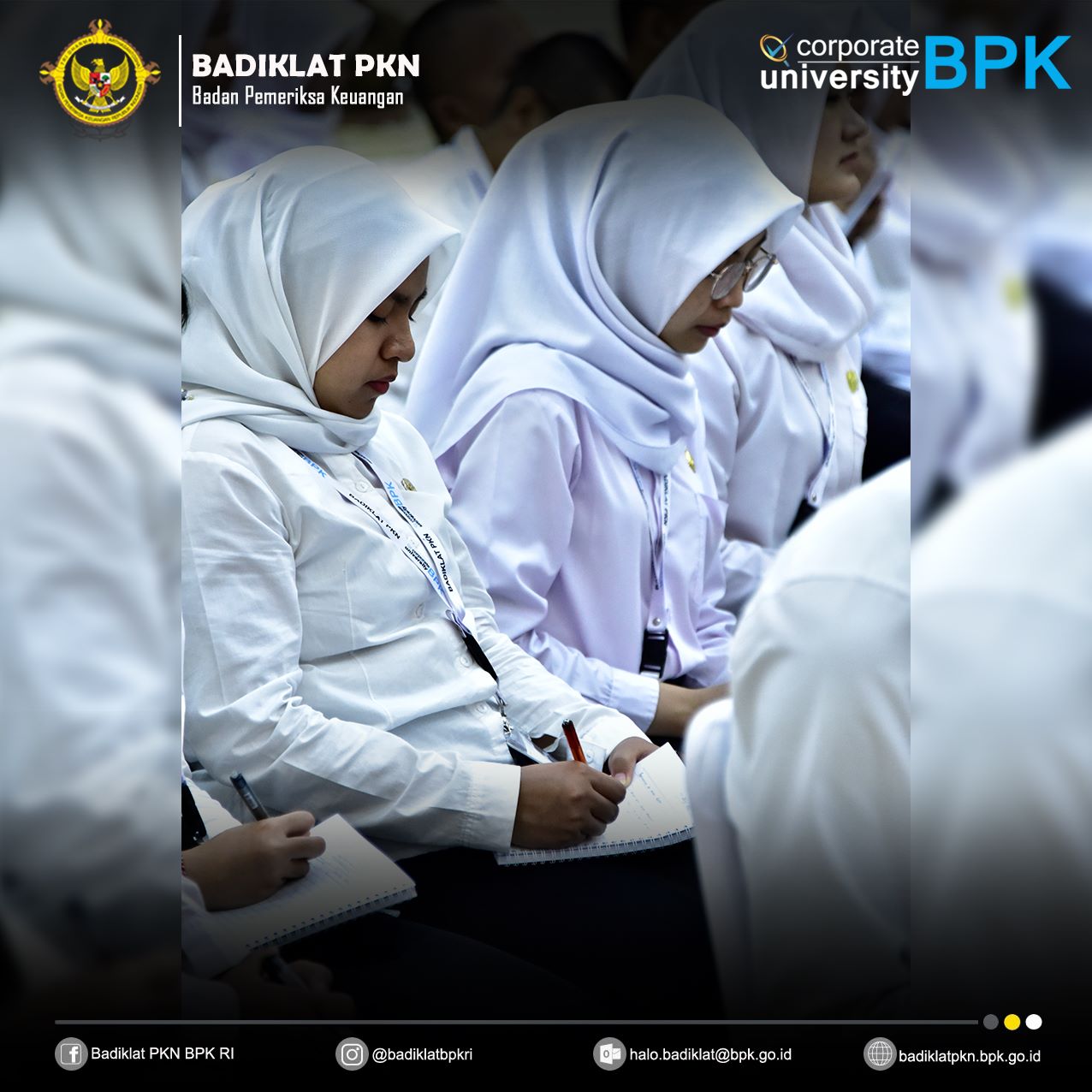
On this occasion, the Deputy Chairperson of BPK explained why, following BPK’s Basic Values, professionalism is necessary as the moral crystallization inherent in every BPK member and Auditor. The standard and ideal when carrying out Audit duties consists of Independence, Integrity, and Professionalism. The dimensions of ASN professionalism include qualifications, competencies, performance, and attitudes.
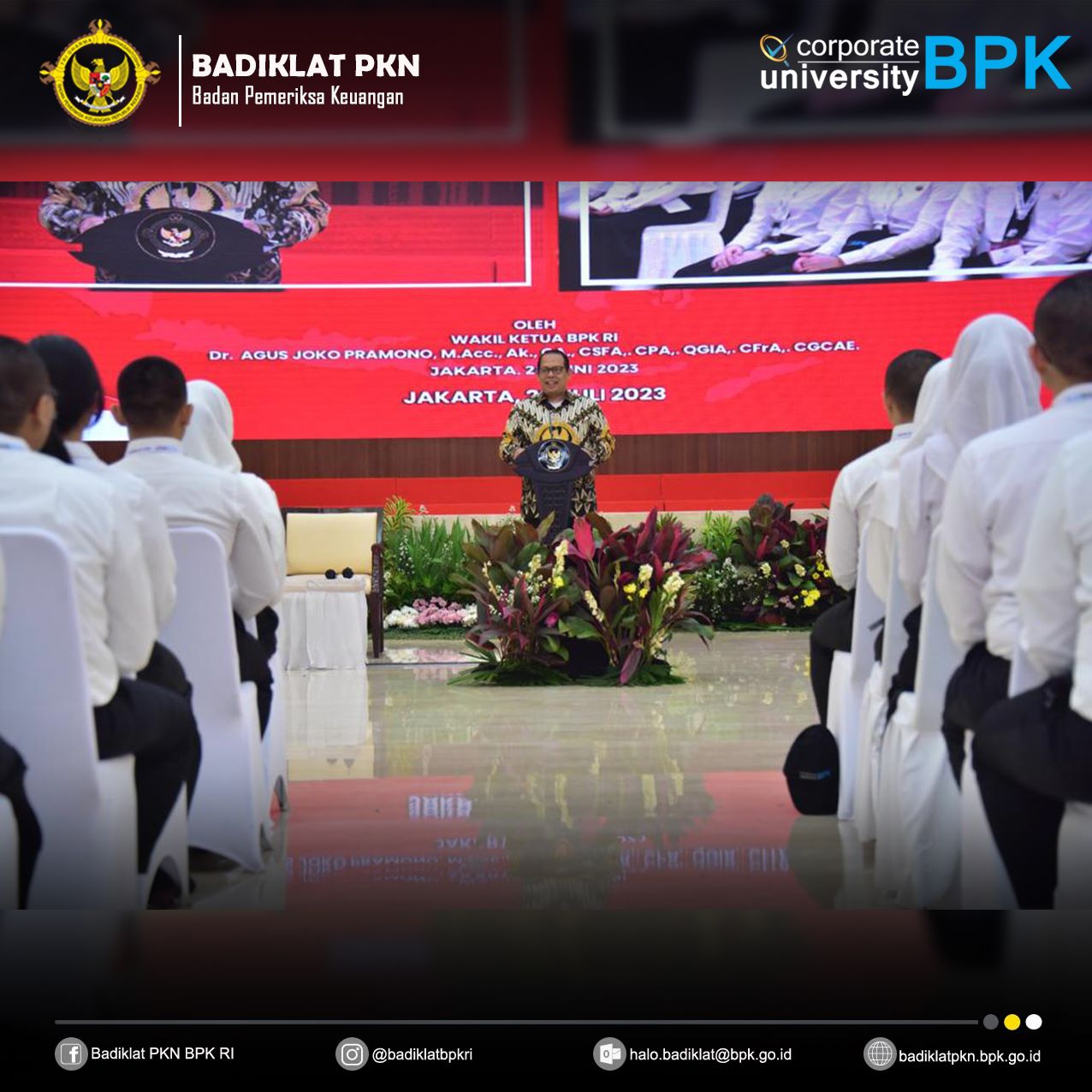
Additionally, the Deputy Chairman also shared tips on building professionalism, including being productive at work, creating a professional image, having initiative at work, working effectively, managing time efficiently, having integrity, giving excellence in work results, problem-solving, being positive and constructive, good communication, building self-awareness and good relationships.
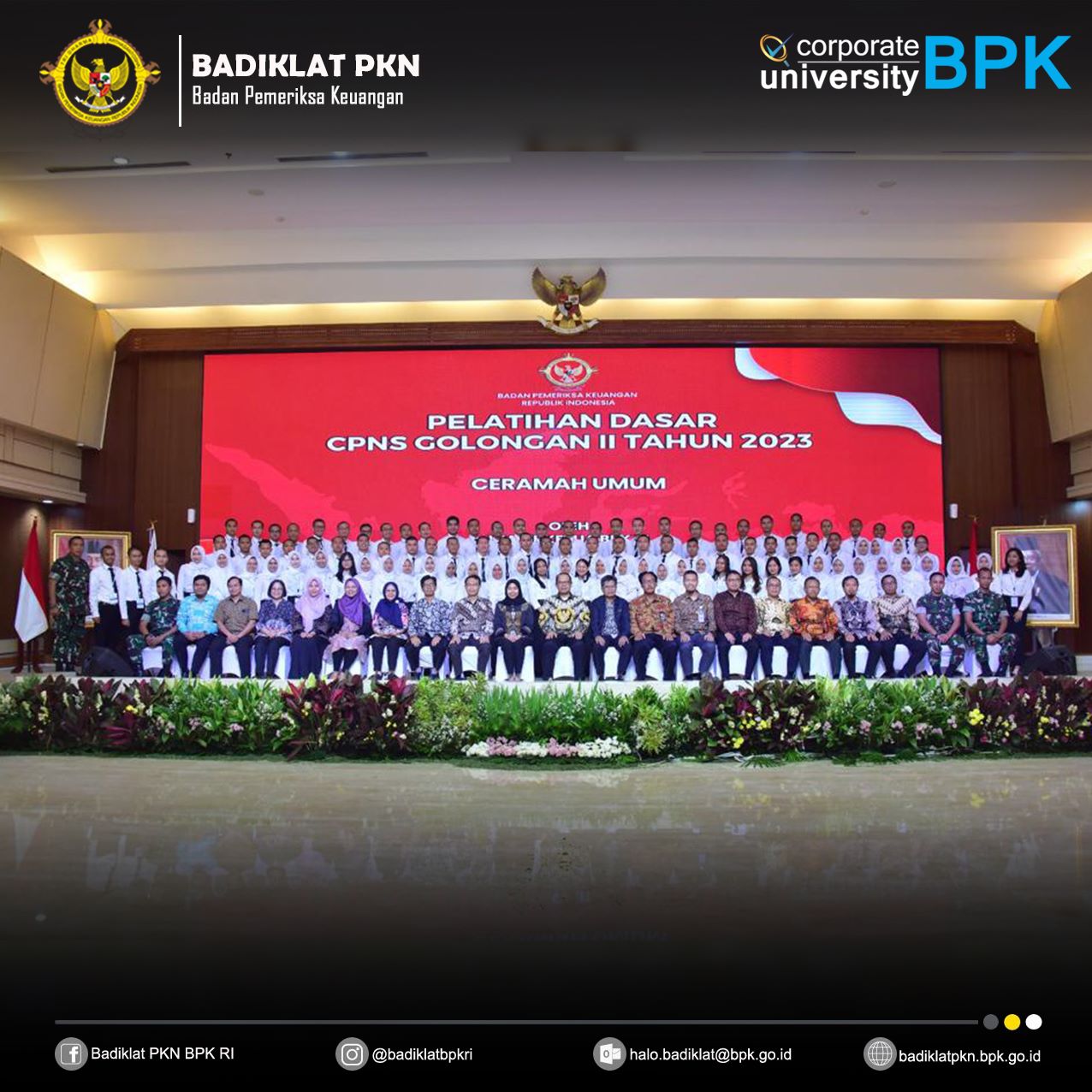
Through this public lecture, it is hoped that participants will become professional ASN, have fundamental values and professional ethics, and be free from political interference, corruption, collusion, and nepotism practices.
